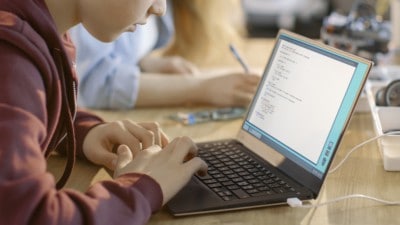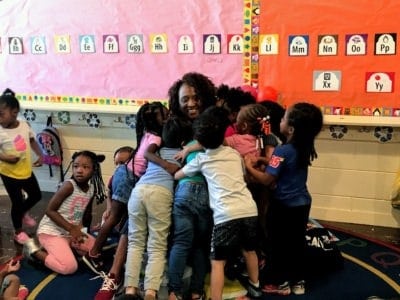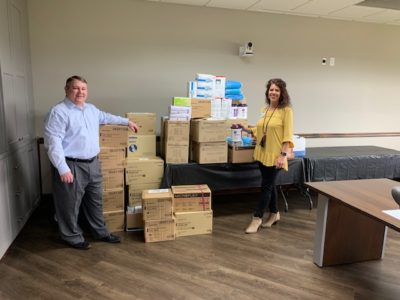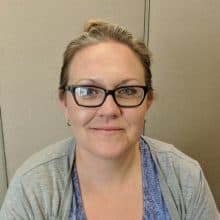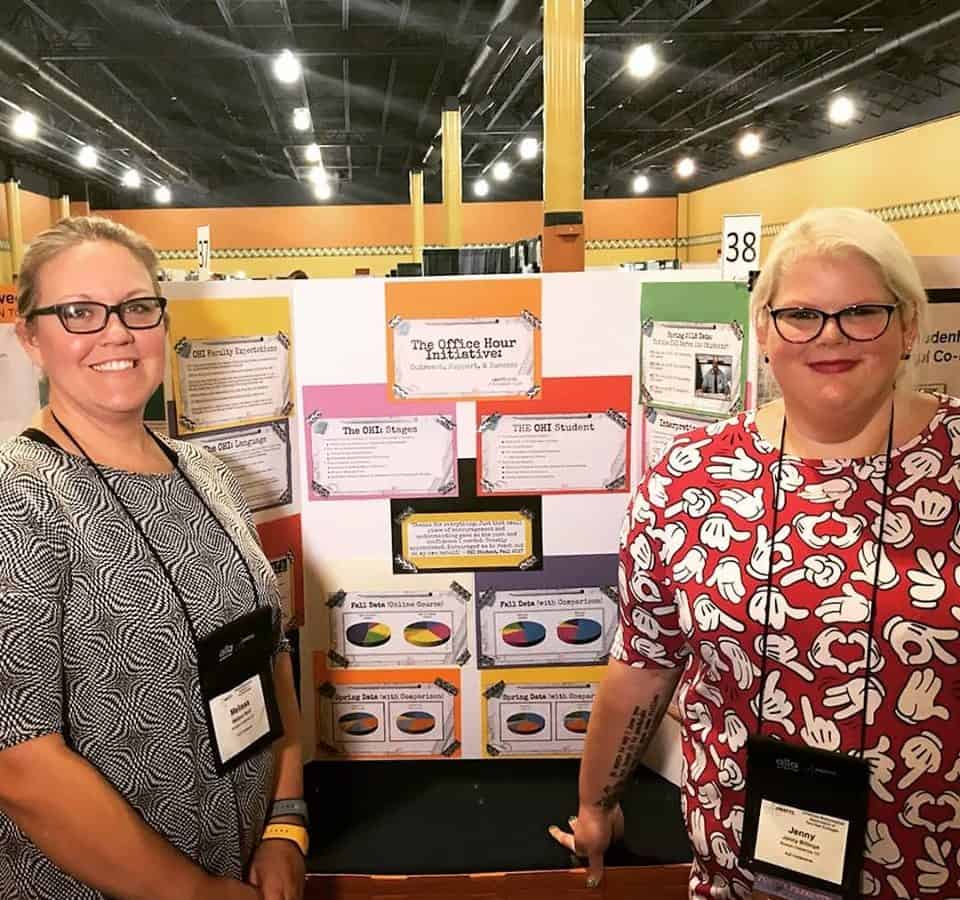
The friendship between me, Dr. Jenny Billings, chair of academic related courses and English, and Melissa Reid, chair of mathematics, started years ago at Rowan-Cabarrus Community College. I became chair a few years before Melissa did, so it made sense that I would help her learn the ropes for the first few months. Trust me, she didn’t need much help; she was meant to lead.
Impressed by our matching work ethics and excited by the possibilities of partnering, Melissa joined the existing “e-Text Initiative,” a 2014 cost-effective and inclusive access roll-out of Blackboard-embedded digital resources that allowed students instant access to their materials on day one. In January 2018, we found ourselves as a Bellwether Top 10 National Finalist, presenting on e-Texts together, along with a few others.
We are no strangers to big work ethics, big ideas, or big results. While preparing
for the Bellwether Awards in fall 2017, we partnered again on the Office Hour Initiative, or OHI, that encouraged students to reach out to their instructors for help, required office hours for students that fell into certain categories or trouble zones, and allowed faculty the freedom and flexibility to make office hours work for both them and their students.
Under the OHI, English and math faculty are able to host office hours on campus; virtually through Skype, Zoom, or Microsoft Teams; by phone; or through any other method agreed upon by both parties. Not only is the method flexible but so are the office hour day and time offerings. Since Rowan-Cabarrus students are not always available 8 a.m. to 5 p.m. Monday through Friday, available office hours and days can vary week-to-week based on students’ needs. The OHI was created from my dissertation; through research and the college’s Community College Survey of Student Engagement results, I found faculty to be one of the highest rated “resources” that students mentioned. However, we often found ourselves alone during office hours.
In March 2018, we joined together again, volunteering as a beta pilot for the North Carolina RISE (Reinforced Instruction for Student Excellence) Redesign; this meant that new placement criteria and new courses would be offered in fall 2018, two full years before statewide implementation. By spring 2019, we became Network Resources Open College & Career (NROC) specialists to assist other NC community colleges in their EdReady and NROC roll-outs.
Two years into OHI and one year into the Beta RISE Redesign, a need arose for an easier way to track student success, connect students to college resources, and report out student progress. This ask from our Academic Vice President Dr. Michael Quillen, resulted in a homegrown early alert system known as Signals of Success, or SOS. SOS provides a faculty-friendly platform where English and math can track current student success, log outreach efforts, submit tutoring referrals, run reports, access student personal contact information, locate a student’s listed advisor, and effortlessly signal needed college resources.
As you have already noticed, all of these partnerships were of the digital persuasion. Having these things already in place helped ease Rowan-Cabarrus faculty and students into their new remote roles due to the COVID-19 pandemic. We realize that relationships between English and math are unique and not often seen. With English and math representing the two largest divisions, housing the gateway courses, and being the indicators of future academic success, it only made sense to come together.
When Rowan-Cabarrus went on spring break in March 2020, the world changed. The initial spring break was extended an additional week due to COVID-19. With classes resuming online on Monday, March 23, 2020, it was our intent not to disrupt the previous classroom experience by keeping students and faculty connected ‘face-to-face’ (Zoom), offering flexible office hours, and providing a similar learning experience.
After years of collaboration, it was time to join together again to create an executive plan for moving hundreds of sections and approximately 100 faculty members fully online. We had five days to train faculty on Zoom, redesign SOS to benefit the new remote environment, and provide instructors with the resources and confidence needed to resume classes. Technology already present in the lives of Rowan-Cabarrus faculty and students, even sparingly, was repurposed and, in some cases, incorporated more.
In fall 2020, English and math will link up again: to utilize SOS version 2.0 and to fully implement the RISE Redesign. There is no way that we could have done this without the support of our college and faculty. Sure, we provided the opportunities, the training, and the tools, but our faculty contributed their passion, their commitment to students, and their patience (since we constantly seek out new ways to improve student success).
This would not have worked with just any group of faculty. Deemed the “English and math family” by us, our faculty members have proven to be just that. While it takes vision, planning, and a lot of trust, Rowan-Cabarrus could not have done these innovative things with us alone. Our faculty trust us to take care of them; it seems only fair that we trust them to take care of our students.
Recommended reading
